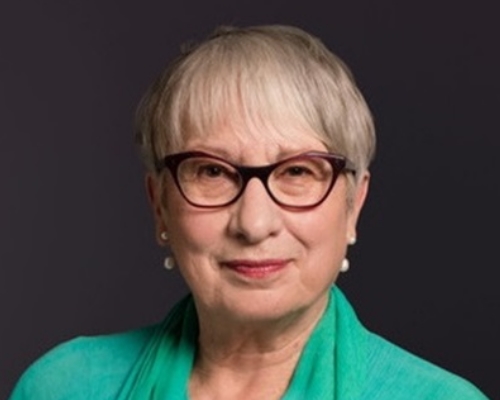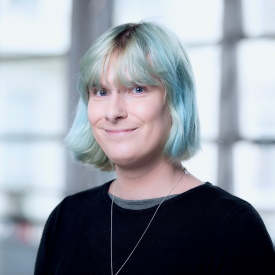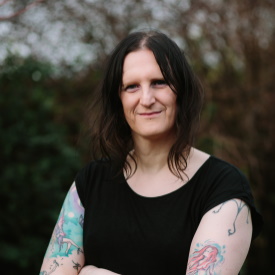Read Uta Frith's parting message to members of the Royal Society Diversity Committee as her term as Chair comes to an end.

Diversity is an essential tenet of modern society, and a key part of the Royal Society’s mission to recognise, promote and support increased excellence in science, technology, engineering and mathematics.
This is because a diverse and inclusive scientific workforce draws from the widest range of backgrounds, perspectives and experiences, thereby maximising innovation and creativity in science for the benefit of humanity.
This extract from the Diversity Strategy of the Royal Society 2015 has inspired the work of the Diversity Committee, which I have had the privilege to chair over the last three years.
It has been an exciting time and I am particularly pleased to see the success of two projects – an animation and guidance raising awareness of unconscious bias, and another aiming to improve group decision-making. Both derived from a review of empirical evidence and resulted in practical guidelines accompanied by short animations. We are all now familiar with the idea that we spontaneously process information using shortcuts, known as unconscious biases. They allow us to make “quick and dirty” decisions. Sadly, being aware of biases is not the same as overcoming them, but awareness is a good thing. For example, it can be liberating to see through one’s own craving to fit in with the likes and dislikes of one’s in-group, even if the desire to conform prevails.
The key to making better decisions turns out to be diversity. By drawing on the widest possible range of experience, expertise and perspectives, diversity acts as a driver to finding scientific and technical solutions to problems for the benefit all of mankind. I am delighted that the Royal Society is committed to continue to promote diversity and inclusion. However, there is work ahead on overcoming some serious obstacles. One obstacle is managing communication across cultural divides, another is managing conflict between groups with strong tribal allegiance. Communication is a highly complex skill. Unless we come from the same background, we often don’t understand what others mean since the same word can often mean very different things. Negotiating with members of an ‘out-group’ is easier if they can be redefined as part of your ‘in group.’ But, herein lies a new challenge: The advantages of diversity depend on the ability to maintain some differences.
In the last three years, the diversity team has carried out some remarkable projects. For instance, the Parent Carer Scientist series presents role models in a variety of different ways, showing there are many different paths and varied life histories in science today, and there are more interesting case studies in the series, I wasn’t always a scientist.
The Society has also continued to rehang portraits to present a more modern and more diverse face to visitors to the Royal Society. It organises the annual diversity conference, and awards the Royal Society Athena Prize to recognise and promote exceptional commitment to diversity. There is also the fascinating Career Tracker study that tells the stories of recipients of Research Fellowships, some of whom from as far back as the 1980s when the programme was first started.
Every year a data report is published, showing the demographic composition of individuals who make up, and work at, the Royal Society and attend its functions, including the Fellowship, grant recipients, committees, authors, editors, conference speakers and audiences. This report is a valuable instrument to show the state of affairs as well as any changes over time. For example, the report shows us that 9% of the Fellowship are women (including Foreign Members). However, the report also shows us the period from 2008 to 2017, 15% of Fellows elected were women, and that in the last 5 years, 2013 to 2017, 20% of Fellows elected were women. By comparison, in the ten year period before that, from 1998 – 2007, 10% of Fellows elected were women. It is gratifying to see a doubling of this proportion since then. However, women are only one of the underrepresented communities that concern the Diversity Committee. One particularly exciting project, now in the third year of its pilot, is a mentoring programme in conjunction with the Windsor Fellowship, for Black secondary school students intending to study a STEM subject at A Level. A new cohort has been starting each year and we are immensely grateful to the Research Fellows who volunteer as mentors to guide the students into the scientific careers they desire.
Much work remains to be done to maintain a culture within the Society that encourages and promotes diversity and inclusion. As my term has come to an end, I want to say how proud I am of the work done by the Committee and by the Royal Society’s diversity team. I am delighted that my successor, Professor Veronica van Heyningen FRS will lead on fresh initiatives that will strengthen the Society’s resolve to “create an environment where anyone who is considering a career in science is encouraged, supported, welcomed and has an equal chance to excel.”
In this endeavour I wish every success to the members of the Diversity Committee, to its new Chair, and the dedicated staff of the Royal Society diversity team.






